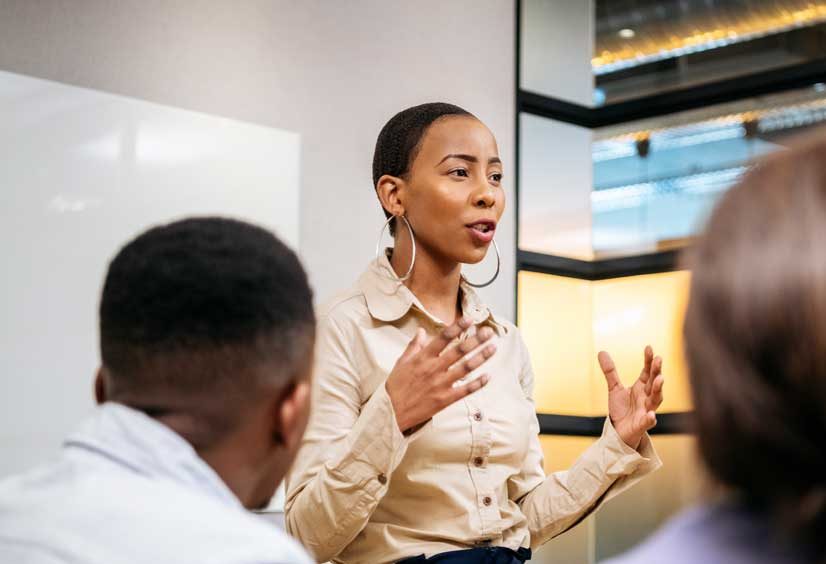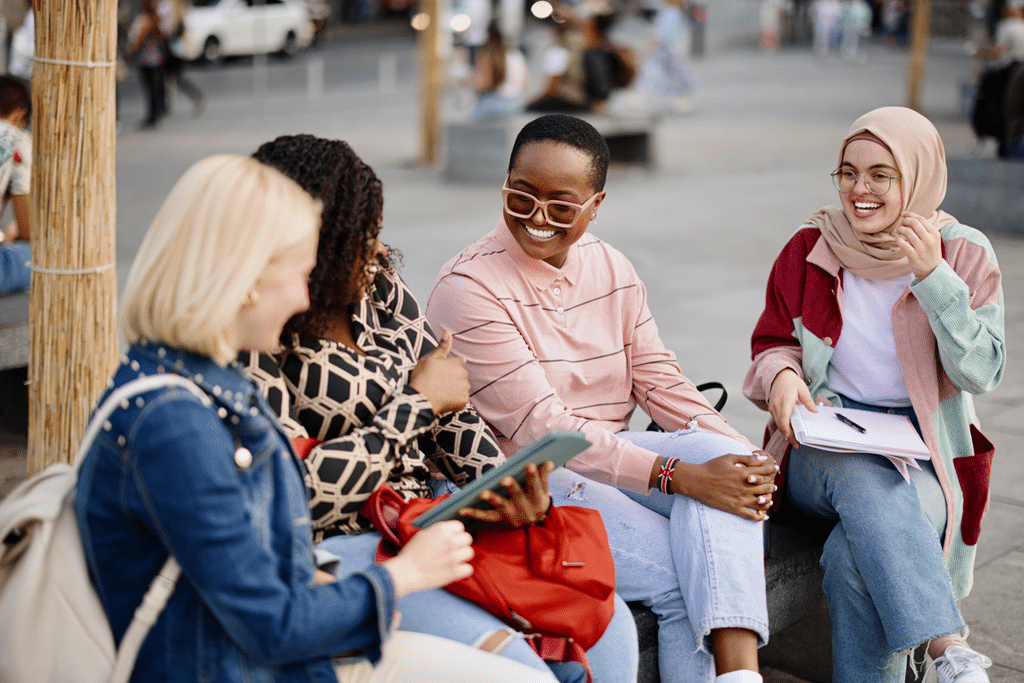One only needs to look at today’s news to realise how polarised our global society can be. Geopolitical tensions and various events contribute to upheaval around the world. It is important to remember that while some struggle to collaborate with others, which can lead to destructive conflict, others work diligently each day to be open, learn about others, and build harmonious interactions. As an institution focused on applied psychology, SACAP is committed to fostering an inclusive culture where everyone feels heard and valued.
To cultivate a society anchored in mutual respect and acceptance, we must honestly reflect on our history, examine our beliefs and biases, and enhance our listening and communication skills. Drawing on insights from a recent SACAP webinar titled “Acceptance vs. Tolerance,” this post will investigate privilege and the distinction between tolerance and acceptance. Furthermore, it will outline ways to improve our ability to engage with individuals who differ from us.
Background: What is the role of privilege?
To understand why our society is the way it is, we must look to the past and consider how discrimination and oppression have created privileged and marginalised communities based on beliefs about what is “normal” or not. Acknowledging privilege and what it means is one of the key concepts we must understand to not merely tolerate difference but also accept and celebrate it.
In South Africa, it is no secret that racial discrimination and oppression have created the society we live in today. However, we must recognise the multiple other forms of oppression to realise that privilege exists across various domains. For example, women, the LGBTQIA+ community and people with disabilities experience discrimination. With so many varied forms of dominance, breaking down entrenched patterns of normalisation is not straightforward.
Discussing privilege is an essential part of the conversation about building an inclusive society. To help us better understand privilege and its complexity, we can turn to Sylvia Duckworth’s Wheel of Power and Privilege. This diagram shows how power and privilege play out in society, primarily based on appearance and other factors often beyond our control. It also shows how we fall into a position within a systemic power dynamic.
Confronting privilege can be challenging, especially if privileged people do not recognise its benefits and have not challenged their assumptions about what it means to be “normal” in society. In truth, privilege is intersectional, which means one can access privilege in certain areas and not others. To better understand this complexity, we need to challenge the normalisation of certain privileged positions in society, examine systematic advantage, and further our understanding of what it means to have social power.
The difference between tolerance and acceptance
Since the advent of democracy in the early 1990s, many South Africans from various backgrounds have attended the same schools, worked together and coexisted peacefully. However, have we truly built a culture of acceptance, or has this been superficial tolerance?
Superficial tolerance refers to being able to coexist without significant conflict but also without fully understanding, valuing, and appreciating our differences. Acceptance, instead of tolerance, means we must step outside ourselves, challenge our beliefs and learn to listen and communicate better with others.
While the advent of democracy brought about many changes, many of the same normalised positions of privilege have endured. Marginalised people still experience discrimination. When building an inclusive society, we must create safe spaces to hear these voices.
Learn skills to cultivate an inclusive society
Challenging our assumptions about power and privilege can be challenging for many, especially those who are used to being in a position of power. However, cultivating empathy and cultural sensitivity makes it possible to build an inclusive society, even if it isn’t easy. All that is required is a genuine curiosity, a conscientious approach to breaking down prejudices and preconceived notions, open-mindedness, and a willingness to learn. Even though we may sometimes unintentionally say the wrong things, engaging in dialogue is essential – it’s how we learn and move forward.
Practically speaking, it is crucial to learn to communicate more effectively and cultivate the habits of active and empathic listening. Active listening entails going beyond merely hearing words and waiting for your turn to respond. It involves genuinely listening to what someone says through their body language, tone of voice, and emotional state.
Empathic listening involves trying to see and feel things from the other person’s perspective rather than your own. It also means expressing empathy, which can help the speaker feel understood, thereby increasing connection. As discussed in the webinar, if you genuinely wish to be more respectful, you can find a way to engage. However, it is vital to question your motives for asking questions and ensure your intentions are sincere.
Upskill in a diverse and complex world with SACAP Global
To cultivate these skills, SACAP Global offers a range of short online courses that can help you learn how to communicate and listen effectively, which can help us build an inclusive society where everyone feels valued and respected. These courses include:
- Intro to Human Behaviour
- Factors Influencing Human Behaviour
- Effective Interpersonal Communication
- Interpersonal Communication: Relationships & Conflict Management
- Social Psychology: How Social Influences Shape Identity
- Social Psychology: How Social Influences Impact Behaviour
- How to Have Critical Conversations







